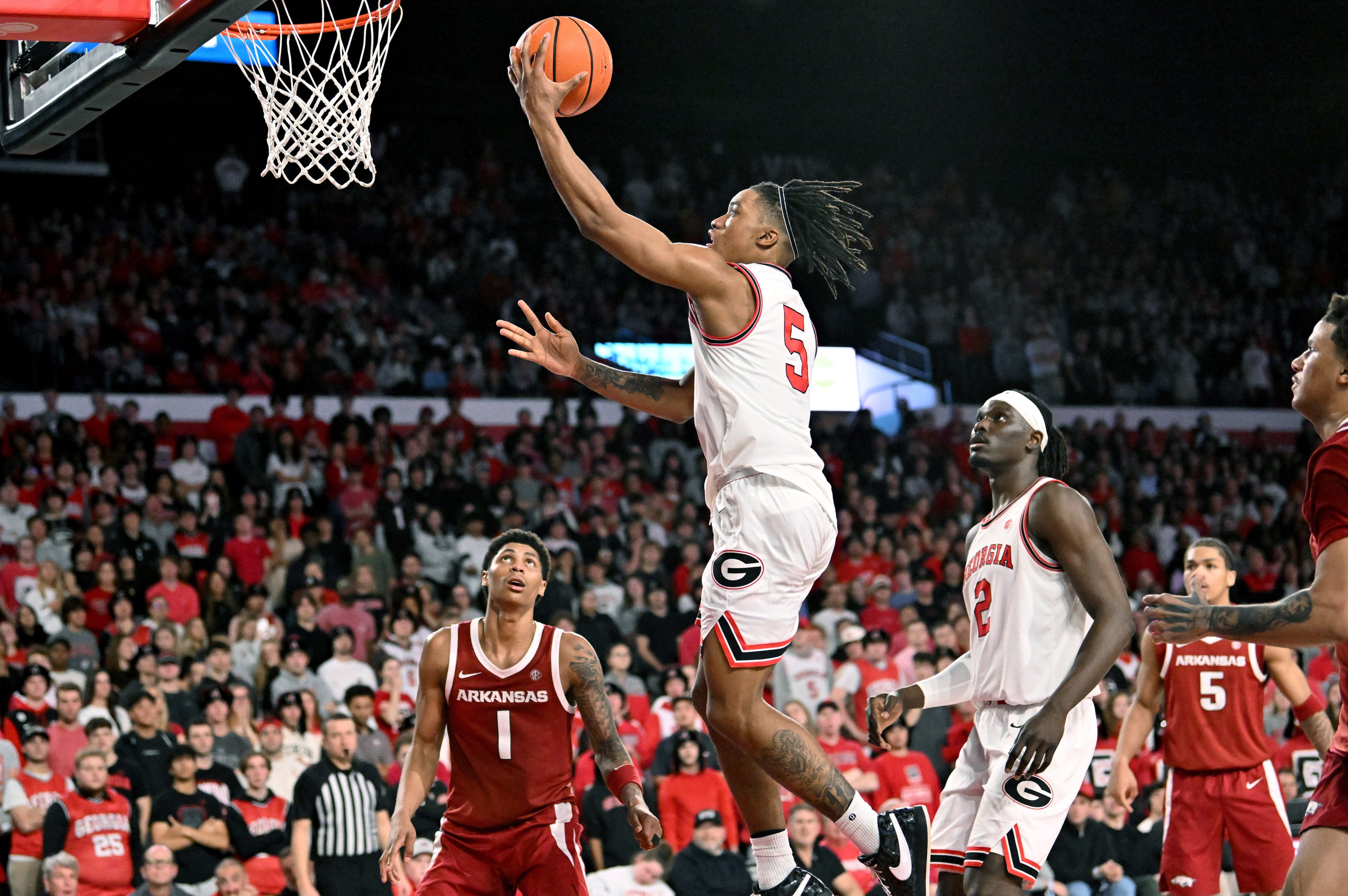No Georgia athletes have opted out as SEC releases COVID protocols
Georgia’s Ron Courson has been on the front lines of the battle to bring sports back despite an unrelenting global pandemic, and he believes it can be done. But he said it can happen only through rigorous testing, vigilant monitoring and the full cooperation of the athletes themselves.
The Bulldogs’ longtime director of sports medicine, who sits on the SEC’s Return to Activity and Medical Guidance Task Force, detailed for reporters Friday what UGA has been doing and will do as plans continue to conduct football and other sports fall. Courson’s briefing came in the wake of the SEC’s unveiling Friday of minimum medical protocols that must be met for competitions to be conducted.
During a 25-minute digital conference call, Courson revealed that Georgia has not had any other athletes or staffers hospitalized since March and that, so far, none of the Bulldogs’ athletes have “opted out” for the coming season.
“I think we’ve been very fortunate here, but I also think that’s a credit to everybody involved, including our custodians,” Courson said. “Our building-services people have done an awesome job. ... They’re our frontline defense for infection control and put themselves at risk, too.”
The SEC disclosed Friday that it is requiring two COVID-19 tests each week for football players that must be conducted three days and six days before a competition. That will be Sundays and Wednesdays for a Saturday game. They will use a polymerase chain reaction (PCR) test, which is one in which a DNA swab is taken and sent to the SEC’s designated third party for analysis. That process usually takes 48 hours, Courson said.
But in addition to that, Georgia also plans to conduct “rapid diagnostic tests” on all players on Fridays before games in which they can get feedback in 15 minutes. They’ll also have that capability throughout a game weekend.
“The beauty of that is before you get on a plane or a bus, you can do an effective screening and feel as good as you can about your travel party,” Courson said. “We’ll be able to test on the road as well. ... We want to be as thorough as possible.”
The SEC’s task force has been meeting regularly since April to decide how SEC athletics might be able to return to competition in the midst of the coronavirus pandemic. The league’s presidents voted last week to press on with the football season, but only with a delayed start to Sept. 26 and playing an SEC-only schedule of 10 games.
No decisions have been announced yet with regard to other falls sports returning to competition. Athletes in basketball, soccer, volleyball and cross country have been training on their respective campuses since late June, and Courson said Georgia’s gymnasts joined them on campus this week as well.
“Our health experts have guided us though each stage of preparation for the safe return of activity and, together with the medical staffs embedded within our athletics programs, we will continue to monitor developments around the virus and evolve our plan to meet the health needs of our student-athletes,” SEC Commissioner Greg Sankey said in a statement released Friday.
The requirements include testing, procedures for infections and contact tracing, and protocols for quarantine and isolation.
That has all been extremely effective for Georgia, Courson said. The athletic department has not responded to open-records requests seeking the numbers of athletes tested or how many have tested positive for COVID-19. UGA reports a total number each on the school website, but it does not distinguish between faculty, staff, students or athletes.
As of Thursday, that number was 443. It includes football video technician Jeremy Klausky, who was released from Piedmont Athens Regional Hospital in April after spending nearly a month in intensive care.
The UGA campus has been practically abandoned since then. But students are set to return to campus for face-to-face instruction Aug. 20. That has everybody concerned.
“This (athletic complex) is probably as safe an environment as you could have, but you’re also talking about 18- to 22-year-old college students,” Courson said. “They have a life, and they’re going to want to go out to eat and see their friends. So the most important thing is to encourage them to make the right decisions. But I compare risk mitigation to a slice of Swiss cheese. There are holes there and things can go through. So it can’t be one strategy; it has to be multiple.”
That said, Courson feels strongly sports can be conducted safely this fall.
“The way I look at it is I’ve got four kids, including a son who played football here,” he said. “So I treat all of (the athletes) the way I would my own son. ... If I didn’t think it was safe for them to participate, I wouldn’t be doing what we’re doing now.”
Following are the primary guidelines and protocols:
- The SEC will centralize testing through a third-party provider to ensure consistency. They will utilize polymerase chain reaction (PCR), a form of DNA testing, for the COVID-19 virus. Alternative testing methods may be considered if sufficient data develops to support those methods.
- Football players and others in direct contact with the program will receive a PCR test at least twice weekly during competition, typically six days and three days before competition. The task force recommends alternative testing methods that will accommodate a third test that might provide rapid response closer to competition.
- Players must wear masks when on the sidelines during games. The Bulldogs are employing the “gator” style masks that remain secured around the neck and can be pulled up over the mouth and nose.
- Contact tracing is being monitored at all times. If an athlete is determined to have been exposed to an infected teammate by being within six feet for 15 minutes or more, he or she has to be quarantined for 14 days.
- In volleyball and soccer, athletes and staff will have PCR surveillance test at least twice weekly during competition, with one to occur three days before the first competition of each week.
- In cross country, athletes and others in direct contact with the program will receive a PCR surveillance test at least once per week during competition, with that test to occur three days before each competition.
- In football, volleyball and soccer, all coaches, staff and non-competing personnel will be required to wear face coverings on the sideline, and physical distancing will be employed to the extent possible.
- In cross country, competing athletes are required to wear a face covering at the starting line, which may be removed when proper distancing has been achieved. Coaches and staff associated with cross country competition are expected to utilize social distancing to the extent possible and will be required to wear a face covering during pre- and post-competition.
- Each institution is required to designate a COVID-19 “protocol oversight officer,” who will be responsible for education and ensuring compliance with the SEC’s COVID-19 management requirements.
- Athletes in all sports who elect not to participate in intercollegiate athletics during the fall 2020 academic semester because of health and/or safety concerns related to COVID-19 will continue to have their scholarships honored by their university and will remain in good standing with their team.



